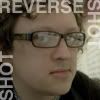Film Editing & Memory
Here's a little article I found on Digg: Cuts in Movies and Their Impact on Memory. In the article, the authors discuss a study that shows a viewer's memory of the actions in a scene isn't as good if the scene utilizes cuts as opposed to a still or moving camera.
Apparently, the reason for this is that our eyes take a moment to adjust to the composition of the new shot. Not surprising as Walter Murch wrote of this in his book, In the Blink of an Eye.
While I found the article interesting, what I found more interesting were the comments in following the article. The majority of people posting on their seem to think that longer takes equals better film or better directing. Maybe it's because faster paced editing is so associated as the requisite technique in brainless action films (see any Michael Bay atrocity for evidence of this).
Editing, regardless of pace, exists as a technique to tell the story. The way shots are put together creates new meanings that may not be evident in the long take. The speed of the cuts may elicit an emotional response (such as a disorienting confusion) or the refusal to cut away from a shot may be to force us to witness something (such as a character's reaction.) We should also remember that editing isn't just cutting, but also not cutting.
Anyway, it seems to me that editing may be the most misunderstood part of the motion picture arts to the general public. I may pen some articles on basic editing theory in the future.
I would definitely suggest watching The Cutting Edge: The Magic of Movie Editing.



No comments:
Post a Comment